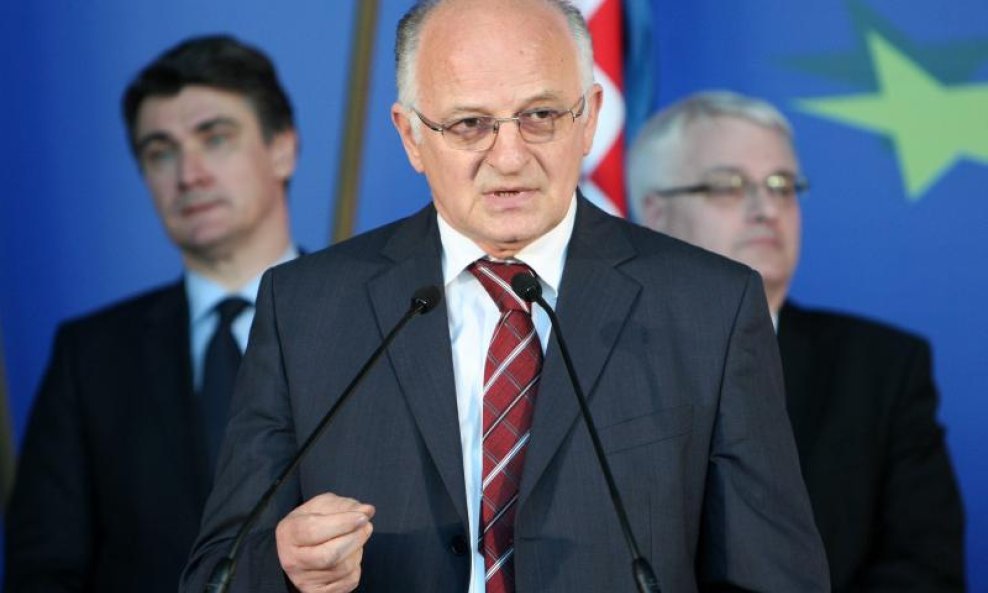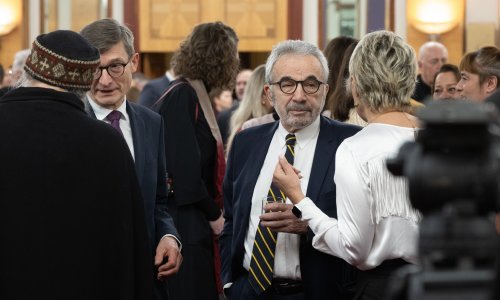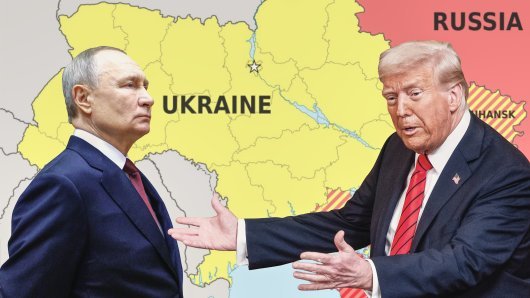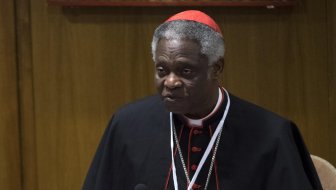Croatian Parliament (Sabor) Speaker Josip Leko has said that Croatia is credibly fulfilling its obligations regarding the accession to the European Union and it will continue meeting them which is why Leko believes that EU member states will recognise Croatia as a desirable next newcomer.
Asked by the press to comment on Bundestag President Norbert Lammert's suggestion that the Union's enlargement should be halted even before Croatia's entry, Leko said on Sunday that the head of the EU Delegation to Croatia, Ambassador Paul Vandoren, had on Friday acquainted the Sabor with the European Commission's comprehensive monitoring report and on that occasion it was concluded that Croatia was making progress and meeting the requirements in a responsible, credible manner with the assurances that Croatia would continue with such efforts so as to meet the remaining requirements before the release of the spring progress report by Brussels.
Leko is sure that in the first quarter of 2013, EU member-states will assess Croatia as a desirable new member and greenlight its accession to the EU, set for 1 July 2013.
"It is our duty to work committedly and meet the remaining obligations," the Sabor Speaker said.
Leko declined to comment on Lammert's statement, with an explanation that he did not want to comment on individual views of any office-holder.
The Speaker of the Bundestag has called for a halt to the European Union enlargement process, including the planned accession of Croatia. "Because of our experience with Bulgaria and Romania, we must take the European Commission's latest progress report seriously. Croatia obviously is not yet ready for entry," Lammert, a member of the Christian Democratic Union (CDU), said in an interview with the Sunday edition of Die Welt newspaper.
Lammert said that the countries of the former Yugoslavia had a prospect of EU membership, but that they themselves should lay the ground for entry. He said that only concrete results in meeting the EU membership requirements should be taken into account, while "good intentions and promises should not become a substitute for proof of reform."
His statement received severe criticism from the German Social Democratic Party (SPD).
"Whoever calls Croatia's entry into question believes that the European Union is incapable of making peace in Europe in the future. This is the most mistaken understanding of the award of the Nobel Prize for Peace to the European Union," the Minister for European Affairs of the federal state of Baden-Wuerttemberg, Hans-Peter Friedrich of the SPD, told Spiegel Online, the online version of Der Spiegel news magazine.
"Neither are previous mistakes being repeated in the case of Croatia, nor should Croatia be punished for the mistakes made by others. The Balkans is still of crucial importance to peace in Europe," Friedrich said.
Before Lammert, another Christian Democrat also spoke against Croatia's accession to the EU. "At the moment Croatia is not ready for EU entry," the chairman of the Bundestag European Affairs Committee, Gunther Krichbaum, told Saarbrueckener Zeitung daily on Friday, adding that Zagreb could not count 100 per cent on the scheduled date of accession, July 1 next year.
The Green Party was explicitly against threatening Croatia with postponement of accession. "The Bundestag should exert pressure, but threats of a veto are dangerous," Green Party spokesman for European affairs Manuel Sarrazin said, noting that Croatia "must do its homework." He said he would recommend to his party colleagues to vote in favour of ratification of Croatia's EU accession treaty.
CDU/CSU have expressed their opposition to the EU enlargement process before, but until now they always mentioned Croatia as an exemption.
Germany believes that Croatia can fulfill, within the given time frame, the tasks underlined in the comprehensive monitoring report, which European Commission issued on Wednesday, the German government reported on its web site on Saturday.
In the pre-accession monitoring the European Commission has pointed to some remaining deficiencies which it detects. The Commission has clearly defined them and those are concrete tasks set for Croatia. From our point of view, it is a positive way of being active as clear criteria will help in meeting and ensuring the real conditions of accession. We are confident that Croatia can meet them within the stated time frame, the German government spokesman Steffen Seibert said at his regular press conference on Friday. The government cited his statement on its web site on Saturday.
The spokesman made this statement in a response to a question whether Croatia's accession to the European Union, set for 1 July 2013, was unconditional and what could happen if no progress was made in the meantime and whether EU governments would one more time vote on whether Croatia could join the Union in the event of failure to meet the requirements.
Seibert emphasised that Croatia was being integrated into the EU on the basis of a much stricter procedure and stricter monitoring than what was the case for the previous newcomers.
Therefore there are a multitude of reports and the mention of deficiencies even in the run-up (to the admission) which could be viewed as the final lap before the finish. The German government finds it correct and well-functioning, he said.

































